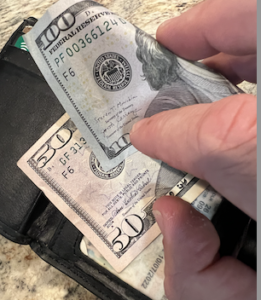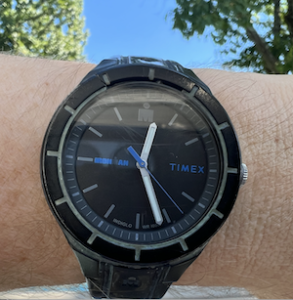Knowing When a Dog Bite Claims is Resolved
 The typical dog bite victim has very little interest in taking her animal attack case all the way to trial, given the amount of time and uncertainty of litigation. For this reason, ninety-five (95) percent of canine attack cases settle prior to trial.
The typical dog bite victim has very little interest in taking her animal attack case all the way to trial, given the amount of time and uncertainty of litigation. For this reason, ninety-five (95) percent of canine attack cases settle prior to trial.
But when is the parties’ agreement truly a “done deal”?
The Settlement Process in Pennsylvania
 A good dog bite lawyer will address all the key issues during settlement, because it will include a release of the injured parties’ rights to sue in the future, even if previously unknown injuries appear, such as nerve damage. The key question is often: “How much money am I getting for this?” And, will I receive a lump sum payment or payments or time (or both)?
A good dog bite lawyer will address all the key issues during settlement, because it will include a release of the injured parties’ rights to sue in the future, even if previously unknown injuries appear, such as nerve damage. The key question is often: “How much money am I getting for this?” And, will I receive a lump sum payment or payments or time (or both)?
But there may be other potential questions. For instance, is the defendant-dog owner asking you to keep the settlement amount confidential? Or, is he/she asking you to refrain from making any disparaging statements about the dog owner? What about future medical bills? Will the parties “agree to disagree” on certain other matters, such as how the dog will be controlled (better), or relocated (away from your community) in the future?
It sounds challenging, but the time invested at this stage –understanding the terms of resolution — will typically pale in comparison to the effort spent preparing for and attending a jury trial in this matter. And, once the parties agree to the key terms of a deal, this can resolve even the most complex disputes involving witnesses that include neighbors (familiar with the dog) who must come to court. On the other hand, enforcing a dog bite settlement can be much easier. A petition to enforce a deal merely asks a judge to review the parties’ understanding. There, only the parties and the counsel are “witnesses” to the deal — but not your neighbors or family.
Identifying the Exact Moment in Time That a Claim is Resolved
 Many think: “my injury claim is not resolved until both parties sign off on the deal, correct?” Only, that’s not true. “[A]n oral agreement to settle litigation is in itself a binding and enforceable agreement even where performance is postponed to a later date,” Mastroni-Mucker v. Allstate Ins. Co., 976 A.2d 510, 2009 P.A. Super 101 (Pa. Super. Ct. 2009), citing to Main Line Theatres, Inc. v. Paramount Film Distributing Corp., 298 F.2d 801 (3d Cir.1962).
Many think: “my injury claim is not resolved until both parties sign off on the deal, correct?” Only, that’s not true. “[A]n oral agreement to settle litigation is in itself a binding and enforceable agreement even where performance is postponed to a later date,” Mastroni-Mucker v. Allstate Ins. Co., 976 A.2d 510, 2009 P.A. Super 101 (Pa. Super. Ct. 2009), citing to Main Line Theatres, Inc. v. Paramount Film Distributing Corp., 298 F.2d 801 (3d Cir.1962).
Thus the matter is finished when: “…the parties come to a meeting of the minds on all essential terms, even if they expect the agreement to be reduced to writing but that formality does not take place,” see Commerce Bank/Pennsylvania v. First Union Nat. Bank, 911 A.2d 133, 147 (Pa.Super.2006).
The party believing a deal has occurred may file a petition to enforce the deal. A judge reviewing the petition will look at the communications (1) between the parties and their lawyers (2) between the attorneys, to see if a deal had been reached, even if not in in writing.
Trying to Deny The Fact That the Case Resolved
It’s common for an injured party to believe he or she was “short changed” after agreeing to resolve a case. Or, the injured plaintiff may mistakenly think that her attorney — whom she had authorized to work out a deal — would “just talk” with the opposing counsel, but nothing would be final or binding, until everyone involved endorsed the deal.
However, such thinking is typically incorrect.
Recent Appellate Decision Enforcing an Deal
In King v. Driscoll, 2023 P.A. Super 259 (Pa. Super. Ct. 2023), the litigants had not endorsed any document. However, their counsel had discussed a resolution of the dispute in detail. The lawyers cooked up a written document, for the parties to sign to resolve the matter. However, Driscoll refused to endorse it. According to him, the deal was not binding on him. Allegedly, his attorney had sent the written document to the opposing party without Driscoll seeing it first.
The judge hearing the matter took testimony from the parties. The court decided that Driscoll’s lawyer had informed Driscoll of the key aspects of the deal, suggesting consent between the parties as to the resolution. On appeal, the superior court affirmed the lower court’s decision.
Case closed.
The Legal System Prefers the Parties to Work Out Disputes
One appellate court opined: “[t]here is a strong judicial policy in favor of voluntarily settling lawsuits because it reduces the burden on the courts and expedites the transfer of money into the hands of a complainant. . . If courts were called on to re-evaluate settlement agreements, the judicial policies favoring settlements would be deemed useless.” See Mastroni-Mucker v. Allstate Ins. Co., 976 A.2d 510, 2009 P.A. Super 101 (Pa. Super. Ct. 2009).
When a Court Will Decline to Find a “Done Deal.”
There is one instance where the parties’ oral discussions will never amount to a done deal. This is when the parties expressly agree that nothing they say is “final,” until the parties circulate a written document for each party to endorse. There, a judge will require the production of something signed by the parties, to treat the case as resolved.
For this reason, it pays to retain an experienced dog bite attorney to conduct the back-and-forth discussions about resolving your claim. Saying the wrong thing during those talks can bind you to a deal, prematurely. Thus, for instance, seasoned counsel will couch each communication with the opposing party as follows: “This offer is subject to my client’s written approval” or “Thank you for your offer, I would recommend my client to accept, pending her review of the entire release agreement.”
This is the only way to be sure you’re totally on board with what your lawyer is saying or doing.
Claims For Children: Court Approval of Every “Deal” Is Needed
To resolve the claim for a person “under the age of majority” (age 18), court approval is needed. No case can be treated as resolved until a judge reviews the evidence and decides the resolution is fair for the child or children. Thus, when the lawyers discuss resolution of a minor’s claim, there is little or no risk of one presenting a “motion to enforce” a perceived resolution, because in the end, the court must approve the amount and terms of the deal involving a kid’s claim for injuries.
Talk to a Dog Bite Lawyer For Free!
Each Pittsburgh lawyer at our firm is ready to advance your dog bite claim. Call our Pittsburgh attorneys any time or shoot us an email.